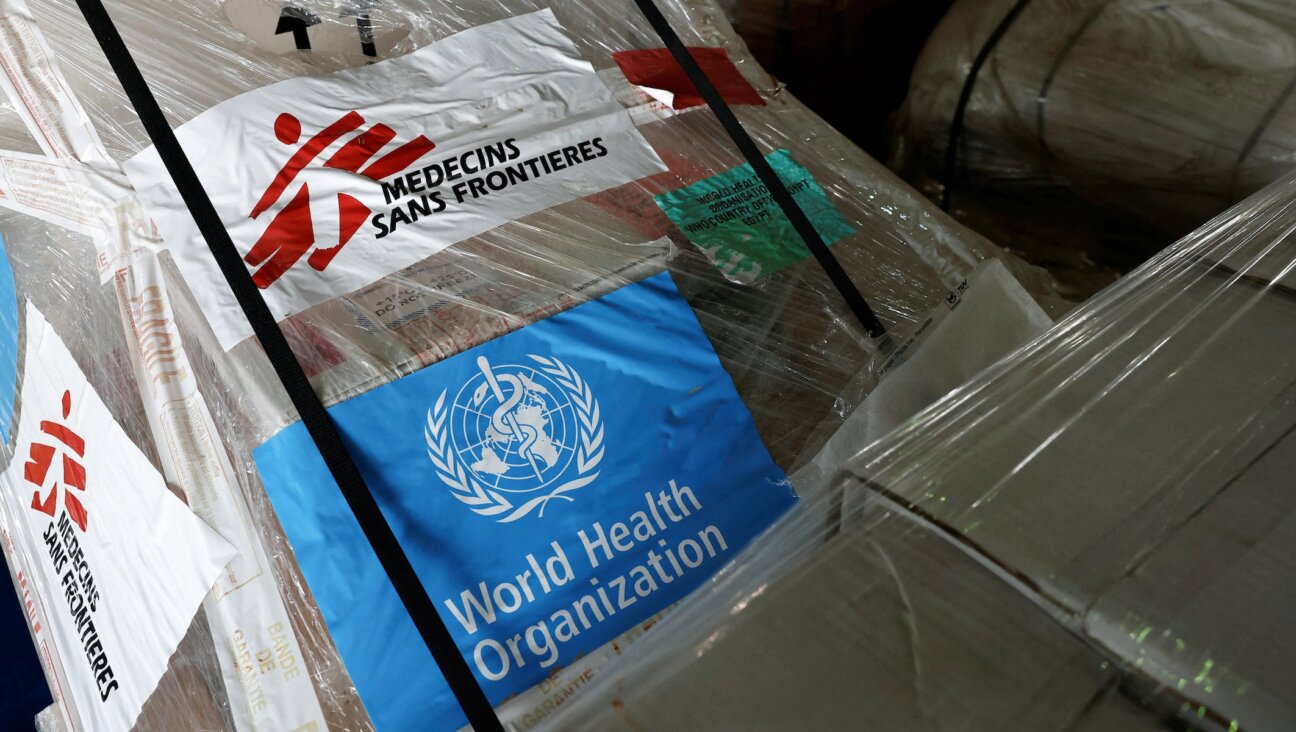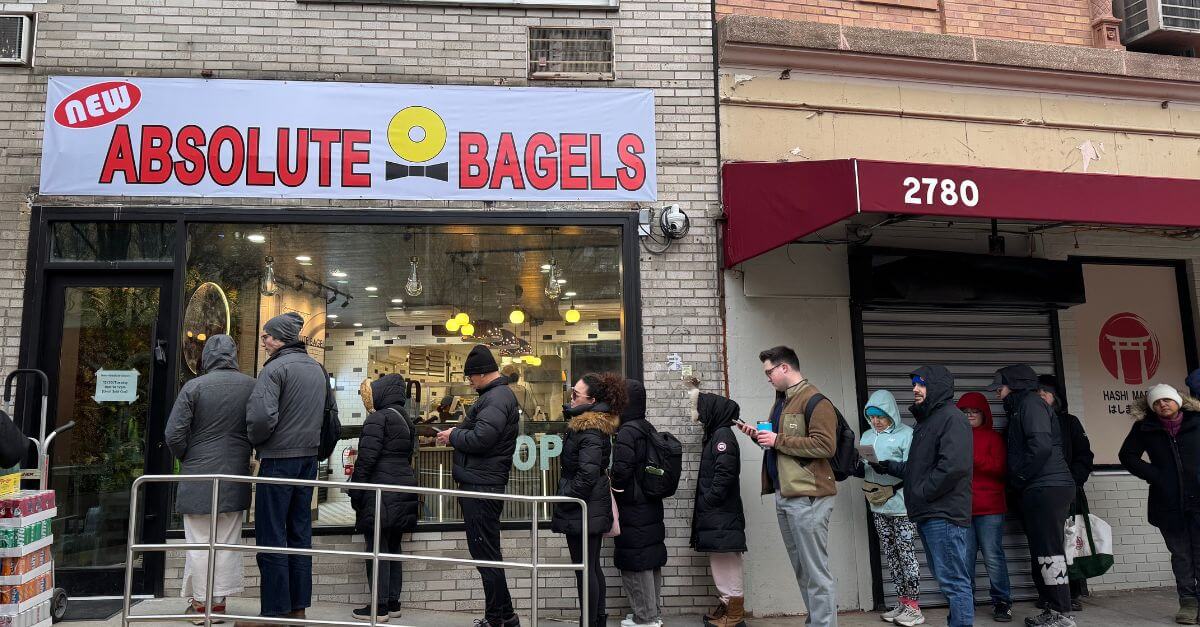Colorado Floods Wreak Havoc With Jewish Holidays as Shuls Battle Rising Water

Rising Waters: Congregations in Boulder, Colo. were scrambling to save anything they could after historic floods swept through the region. Image by jta
(JTA) — Before the start of Yom Kippur, a flood of historic proportions swallowed Boulder, Colo., and surrounding areas, displacing families, damaging synagogues and threatening services on the holiest day of the Jewish year – until determination came to the rescue.
Orthodox Boulder Aish Kodesh hit the Internet first, sending a mass email to 500 residents announcing that heavy rains and flooding had destroyed the tent it had prepared for the holiday. The email offered alternative locations for services, including hard-hit Chabad centers and Denver synagogues out of harm’s way.
Elon Bar-Evan, executive director of Boulder Aish Kodesh, said the tent and parking lot were under water and that many prayer books intended for the services were ruined.
Rabbi Marc Soloway, spiritual leader of Conservative Bonai Shalom in Boulder, told the IJN Friday that his synagogue had sustained significant flooding.
“Our Yom Kippur services are scheduled elsewhere, but it is unclear whether we will be able to have them there at this point due to flooded roads and so forth,” Soloway said. “It’s a mess.”
At Har HaShem, Boulder’s major Reform synagogue, the power was out.
“The lower level of the main building was under four feet of water,” said communications and membership director Ellen Kowitt, reached at her home in Erie, Colo.
Because Kowitt often works from home, she was able to update the website. Before the server collapsed, Rose wrote an email to the congregation:
“The Talmud teaches that rain is a sign of blessing. That might sound questionable right now. Whether we can turn this into a blessing remains to be seen … I believe in us.”
Chany Scheiner of Chabad of Boulder described a scene of utter chaos at the synagogue, which is attached to the side of her home. “CU and other places closed on Thursday,” she said. “My husband Rabbi Pesach Scheiner and I thought they might be making a big deal out of nothing.”
When three rooms filled with water later that night, they knew it was serious. “There was a flood in front of our house and the backyard was a nice sized swimming pool,” she said.
The Scheiners and their children were evacuated. Neighbors convinced them to leave. “We went in their car,” Scheiner said. “It was like the parting of the Reed Sea.”
When the Scheiners returned to assess the damage, they found a few inches of brown water in the synagogue. The family got on their knees to clean the small worship space and then tackled the house.
Days of heavy rain across Colorado’s Front Range left eight people confirmed dead as of Monday evening and hundreds more unaccounted for.
Reconstructionist Beth Evergreen, located in the foothills just outside Denver, nearly shut its doors on the evening of Yom Kippur due to flooding.
According to Rabbi Jamie Arnold, the road cutting through Evergreen, in the mountains west of Denver, was closed all day Friday, which meant congregants coming from Conifer would have to tackle a circuitous route from the opposite direction. Only about 30 to 40 “hard-core” congregants made it to Beth Evergreen for Kol Nidre, Arnold said, and about 300 attended Yom Kippur services the next day, when the clouds dissipated long enough to allow for safe travel.
“I didn’t change my sermon substantially,” Arnold said. “I included prayers for healing and read names for those unable to say kaddish for their loved ones. But my sermon was about the function of community; how it provides sanctuary. I think that said it all.”
Meanwhile, Rabbi Yisroel Wilhelm of Chabad at the University of Colorado was receiving a call a minute and a stream of emails Friday morning.
“We’ve already cleaned up our mess – only a few inches in the shul,” Wilhelm said. “But it’s pretty intense.”
Students contacted Wilhelm to find out where they could attend services in Boulder. Some, unable to get home to Denver, also called him. Others trapped in inaccessible areas requested basic supplies.
“The saddest part for me is that there are people who are completely stranded,” he said. “They can’t even get out of their cars. Another girl in an isolated canyon has no food or water.”
Bonai Shalom was able to hold services at Naropa University, despite the university’s closing. Several Boulder Aish Kodesh members attended Bonai Shalom’s services.
“Our congregation shares land with Boulder Aish Kodesh,” said Steve Hill, president of Bonai Shalom. “We’re very close.”
Rabbi Wilhelm, who rewrote his sermon Thursday night to emphasize the need for volunteers “to seize the day,” said that a few hundred people comprising a “very different turnout” prayed at CU Chabad over Yom Kippur. Kol Nidre “felt like a relief,” he said. “Students were happy to get out of their dorms and join us. There was a very special energy.”
For those who couldn’t make it to synagogue, some observed the holiday at home.
“Yom Kippur is where you are,” said one man, who asked not to be identified. “We had the machzor, we had the parsha, so we did it at home.”
Jonathan Lev, executive director of the Boulder JCC, which also sustained damage, broke away to spend a few hours at Bonai Shalom’s Kol Nidre service.
“Although I couldn’t stay long at services, people were talking to each other, pooling resources and figuring out what was necessary,” Lev said.
Flooding virtually annihilated the Chabad Jewish Center of Longmont, located about 25 miles northeast of Boulder.
“Our shul was completely ruined,” Rabbi Yakov Borenstein said Friday. “It looks like an island. We are right next to a creek here.”
Borenstein managed to save the Torah scroll, prayer books and other ritual items before he was ordered out of the building Thursday. At 3 a.m. that night, the rabbi, his wife and four children were evacuated from their home.
“Our Hebrew school is gone,” he said. “The water is two feet deep. Humidity has warped all our sacred books.” Borenstein worried he might not draw a minyan to Yom Kippur services in Longmont, but almost 100 people showed up.
“G-d has a purpose in everything,” Borenstein said. “I see a tremendous amount of good in people. Volunteers and donations are coming from all over. What a beautiful world we live in.”













